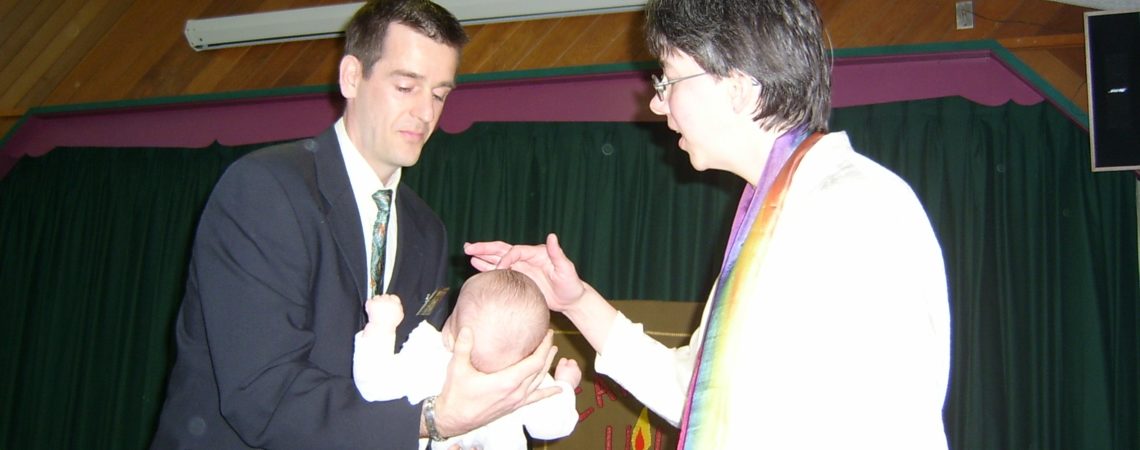Welcome your child into your family and community. The addition of a new child into your family is a cause for great celebration. Whether the new member of your family has been born into the family, adopted or fostered a Naming Ceremony welcomes and celebrates this wonderful time.
Societies have been performing rites of passage to welcome their children for all of
recorded history. They do so for many reasons, in many faith traditions or none, and in
many varied ways.
Traditionally, the element of water has been used as a symbol in these ceremonies, for all
life has arisen from the waters, and it is through water that life is sustained as it flows
forward like a river.
This is also a time to recognize the child by name, for it is by our names that
each one of us is acknowledged as an individual, a unique and separate person with a life
and dignity of his or her own.
A “christening” or “baptism” is a way of welcoming the child into a Christian church,
with a prescribed set of values and beliefs. In some cases, the ceremony can be a symbol
of washing away the child’s “original sin”.
However a Unitarian Universalist naming and dedication ceremony welcomes the child into the
world, and seeks to encourage parents and other adults to dedicate themselves to the well
being of this child and all children, by creating a world that is safe and welcoming for
children.
It is assumed that the values and principles of the family and its wider community
are the ones that should be conveyed to the child. To customize the ceremony for each
child gives families the opportunity to make their ceremonies meaningful to them.
Why might parents turn to Unitarian lay chaplains to dedicate their children? For some,
they want a solemn and spiritual occasion in which to welcome their child to the family
and larger community, and officially to bestow the child’s name. For others, family
members are urging them to have a “christening”, and do not have a faith community, or
are uncomfortable with that of their family. Other reasons abound, and it is always worth
asking the parents about their particular reasons.
(from Canadian Unitarian Council’s Rites of Passage Manual 2012)
